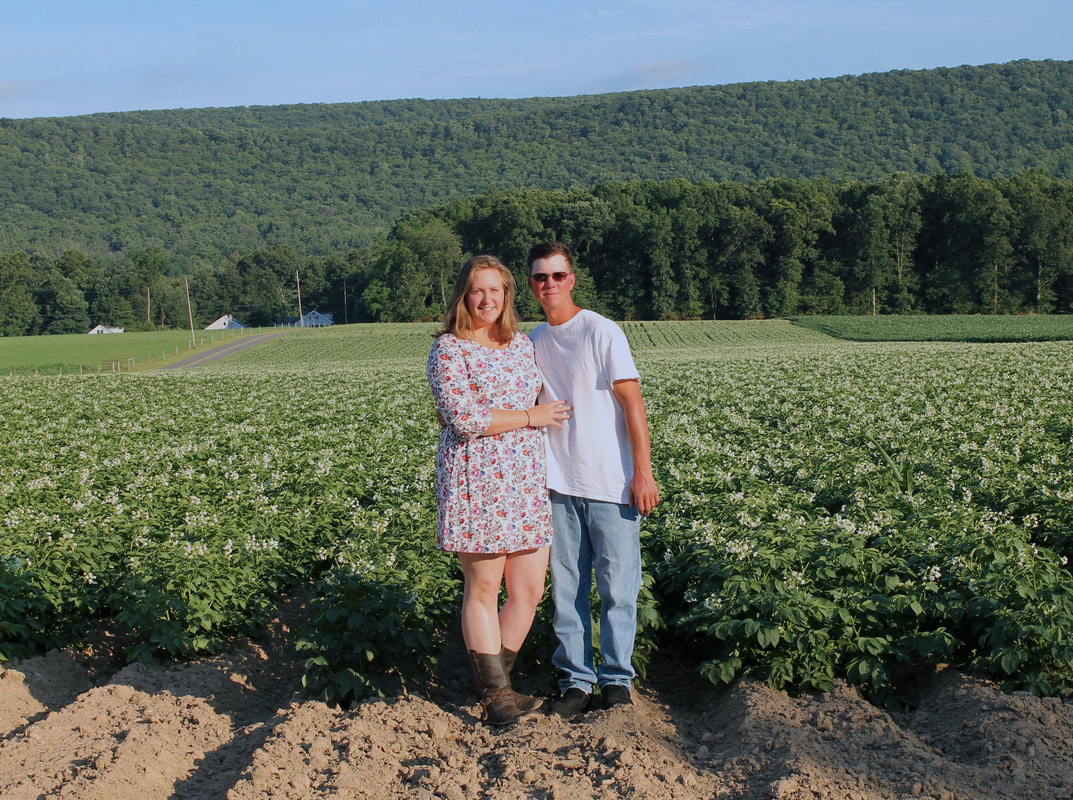When we were digging new potatoes the other morning for market, my father-in-law, Willis, had to stop because the ground was so hard it was nearly impossible to extract them. As we drove the gator down to the wash bins together, the bed behind us full of produce with dry earth still clinging to it, I asked him what the record was for days irrigated on the farm. Around 1990 when Mark and his brothers were very young, Willis said he took the boys to the Lycoming County Fair. It rained about an inch that day in July and it didn’t rain again until September.
As we filled the wash bins with cold water and I poured a bushel of peas into the basin, I took a moment to watch Willis out of the corner of my eye, hunched over the next basin scrubbing potatoes. He talked more about days past and shared his stories of misadventure; a time when the world was perhaps a little less complicated. Harder, but less complicated. This man spent money out of his own pocket, not the farm’s account, to purchase the first water reel back in the 80’s. Today, we run two of them and they are pumping water as we speak. But the water that runs from seven springs, through our pipes and onto our fields pales in comparison to the rain that falls from the sky. Mark told me once that if the corn gets not even an inch of rain after a dry spell, it will be six inches taller after the rain ends.
As Willis spoke about the farm and even his high school days, I felt more like a foreigner than ever before. My father-in-law came from a time when they shoveled potatoes onto wagons by hand and stacked bales of hay with no equipment other than the strength of their backs and shoulders. He came from a time when the shop teacher trusted him with the keys to his car to go pick up a few bags of Sakrete to finish a project at the high school. When Willis was a teenager, there were at least half a dozen, if not more students from farm families in his class. When Mark was a teenager, there was only two. I was standing next to a reminder of a time so far removed from my own. In that moment, with the feeling of cold, clean water on my hands, I truly felt like I knew nothing at all. After all of my travels, schooling and personal misadventures, I still feel like I understand so little about the world - like everything I try to grasp flows through my fingers and away.
It all comes down to something so simple as rain. When there is a dry spell, our lives change. Monitoring the water pump and reels take precedence over everything else, including sleep and even mealtimes. My farm family’s 80-ish hour work week becomes 100, at best. Whatever ache or pain or worry you may have has to wait. Meals that can be made quickly, or kept warm until the final reel is wound, are eaten later and later into the evenings.
Something I’ve noticed about a lot of farmers I know is that they don’t eat as many vegetables as you would think; they eat a lot more TV dinners and microwaved hot dogs than you would ever expect. By the time you make sure every animal and vegetable is fed, watered and cared for, there is very little energy to feed and water yourself. I’m trying to do my best to ensure that happens less often than not, but we have our moments. That is why I turn to this soup; it is the epitome of simplicity with only broccoli, water and salt. I think we could all use a little more simplicity (and water…and broccoli) in our lives. To me, it is a taste of a different time.
Gordon's Broccoli Soup
Makes about 1 quart
Adapted from Gordon Ramsay
| Ingredients About 6 cups of broccoli florets Kosher salt Olive oil | Method Bring a large stockpot of water to a rapid boil. Season the boiling water generously with about 1 tablespoon of salt. Add the florets to the water and season again with another tablespoon of salt. Stir the florets to disperse the salt and then cover the stockpot with a lid to bring the water back to a boil quickly. Let the broccoli cook for 4 minutes. After 4 minutes, carefully remove the lid from the stockpot and ladle about three cups of hot broccoli "stock" into a heat proof bowl or measuring cup. Place a colander in the sink and strain the broccoli florets. Add the hot broccoli to a blender, then pour about 1 1/2 - 2 cups of reserved broccoli water into the blender as well. Process until very smooth and creamy. Taste and season again if necessary. Add additional broccoli water if a thinner consistency is desired. Serve hot with a drizzle of olive oil. |

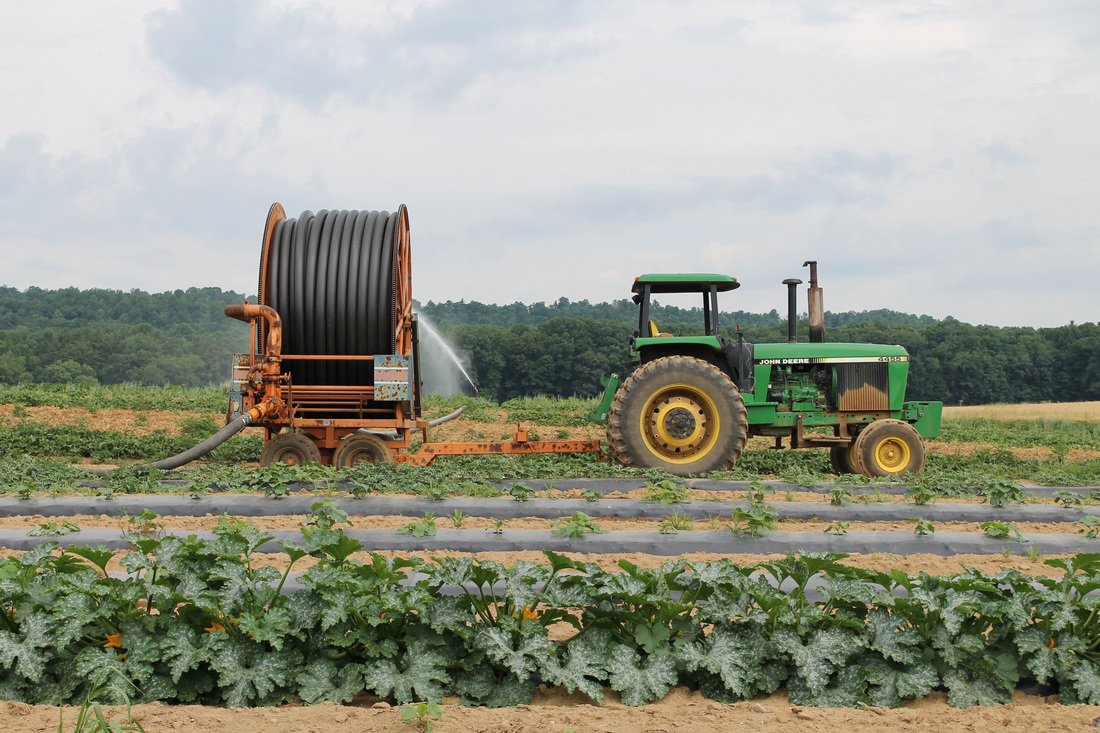
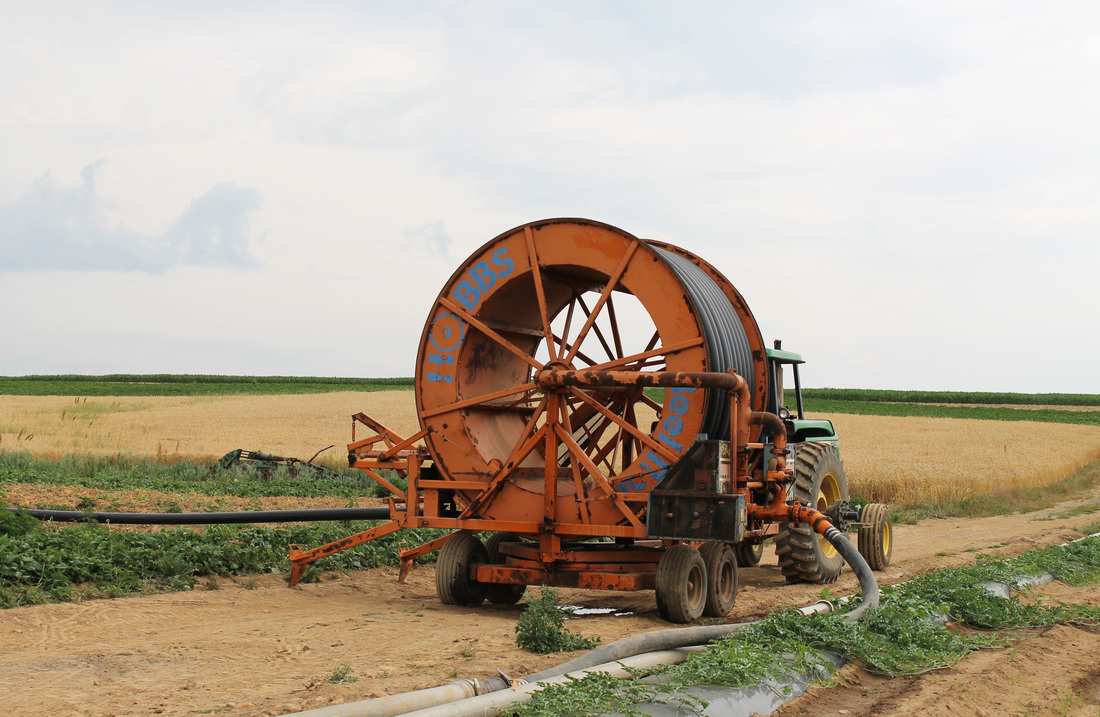
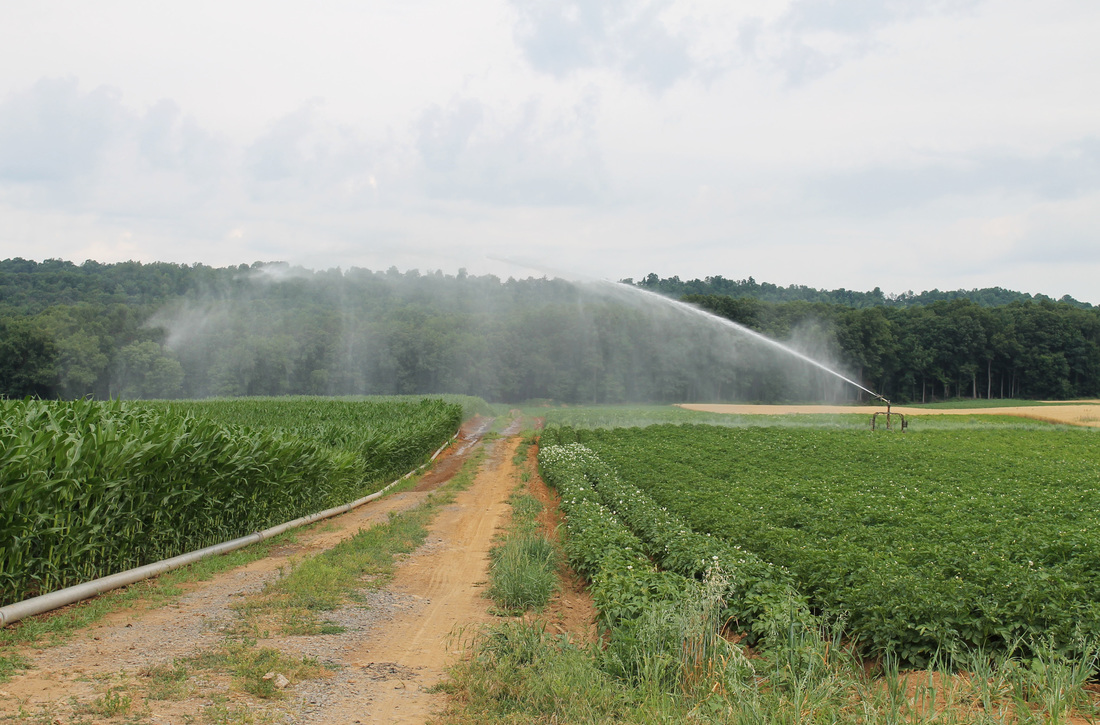
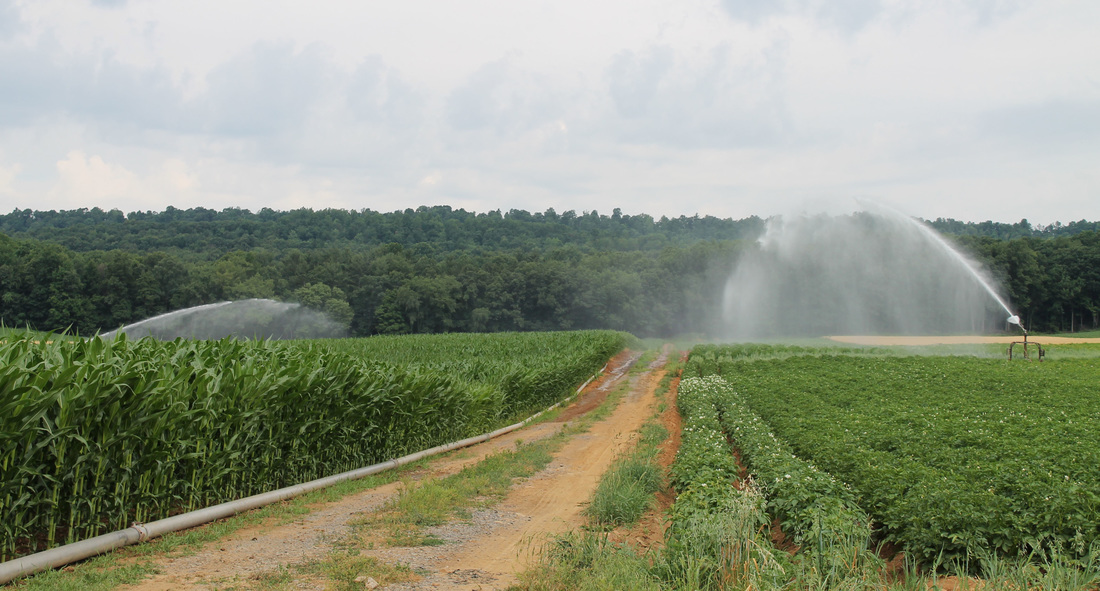
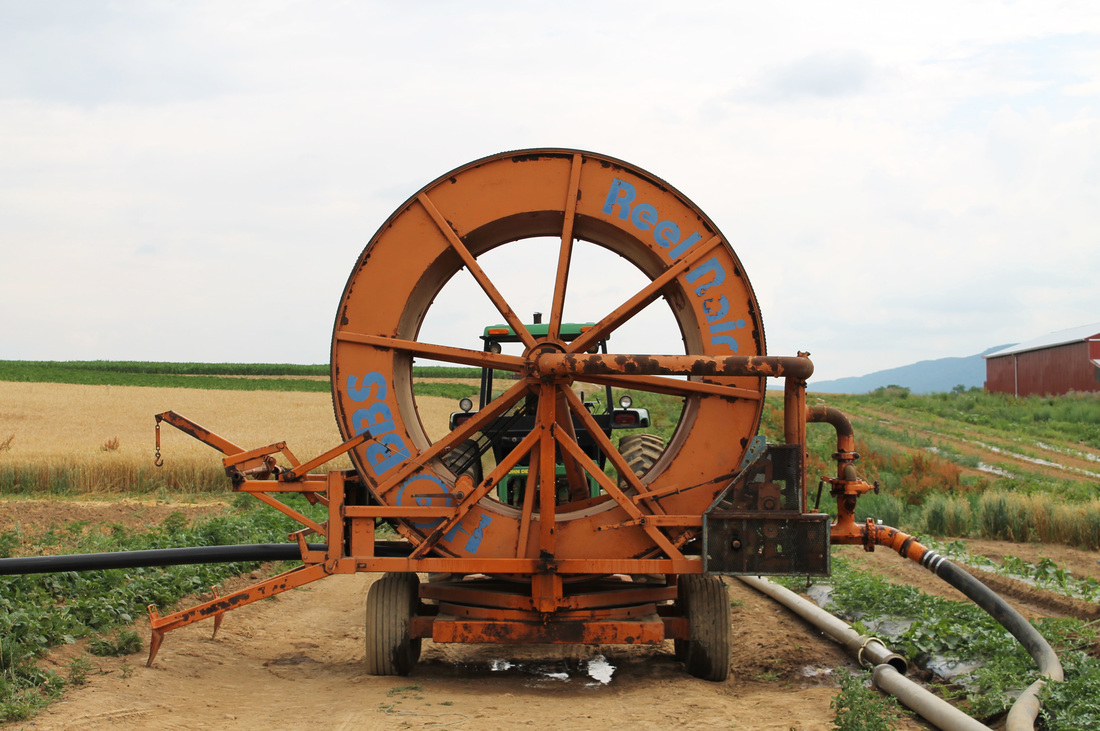
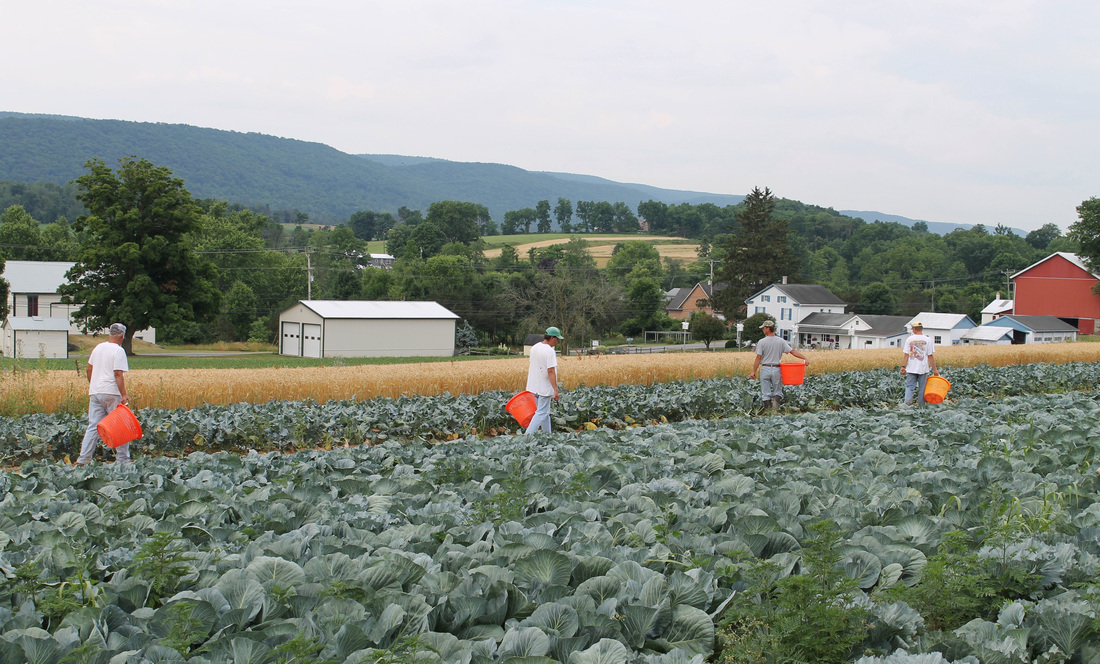
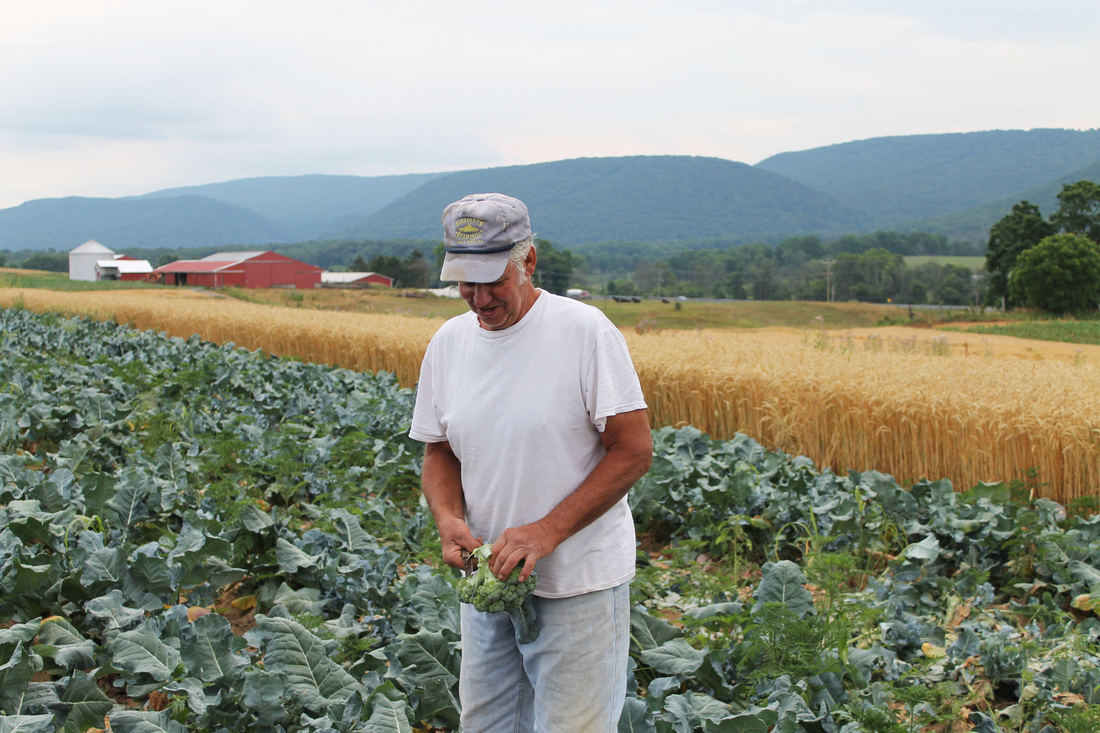
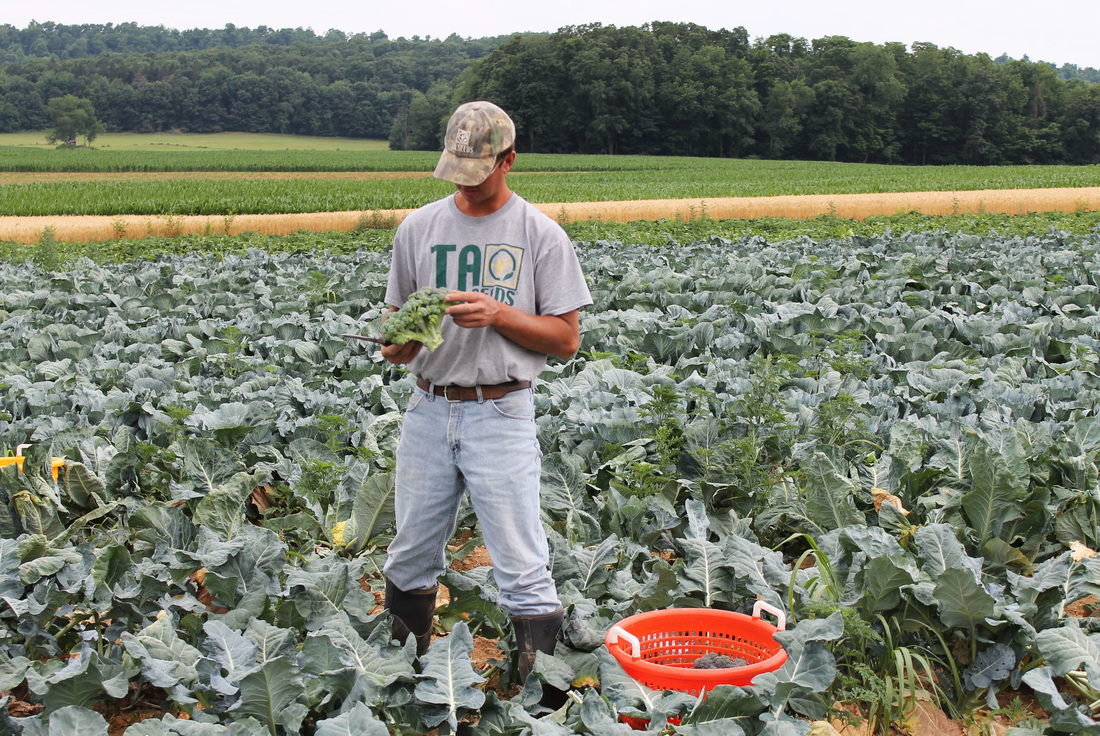
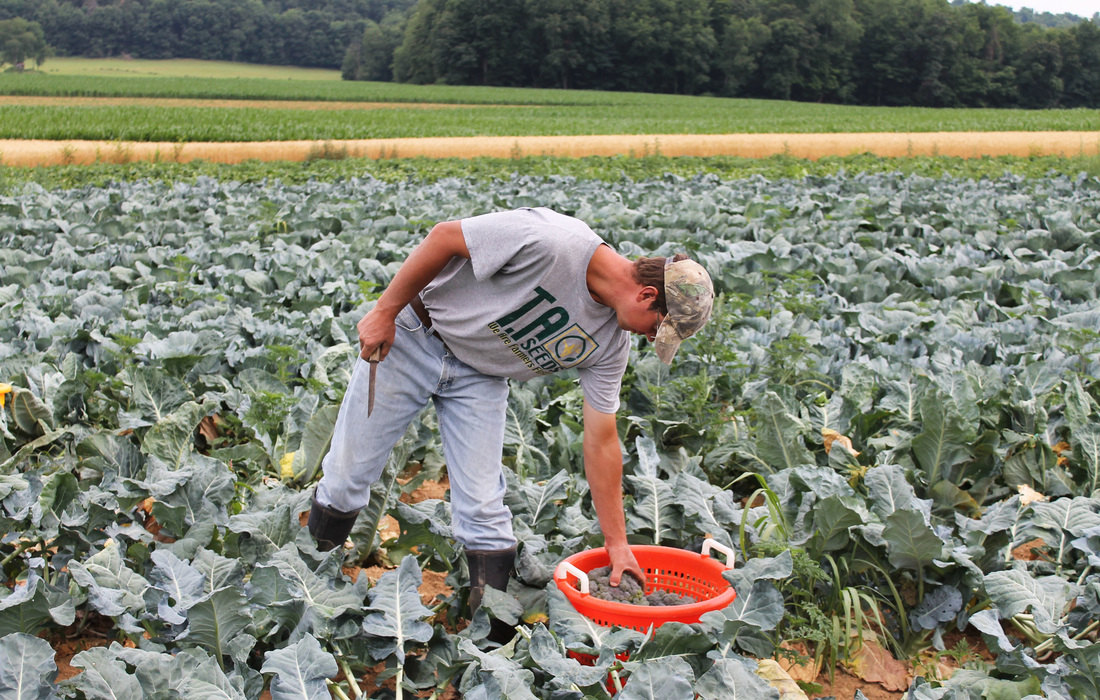
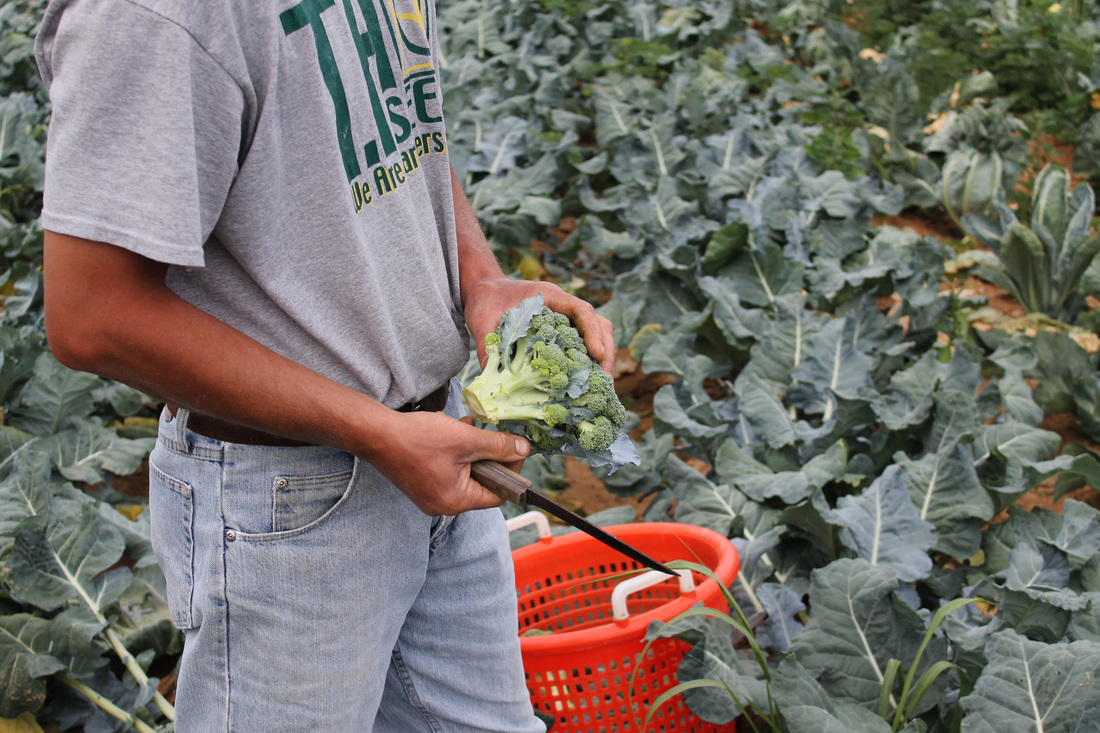
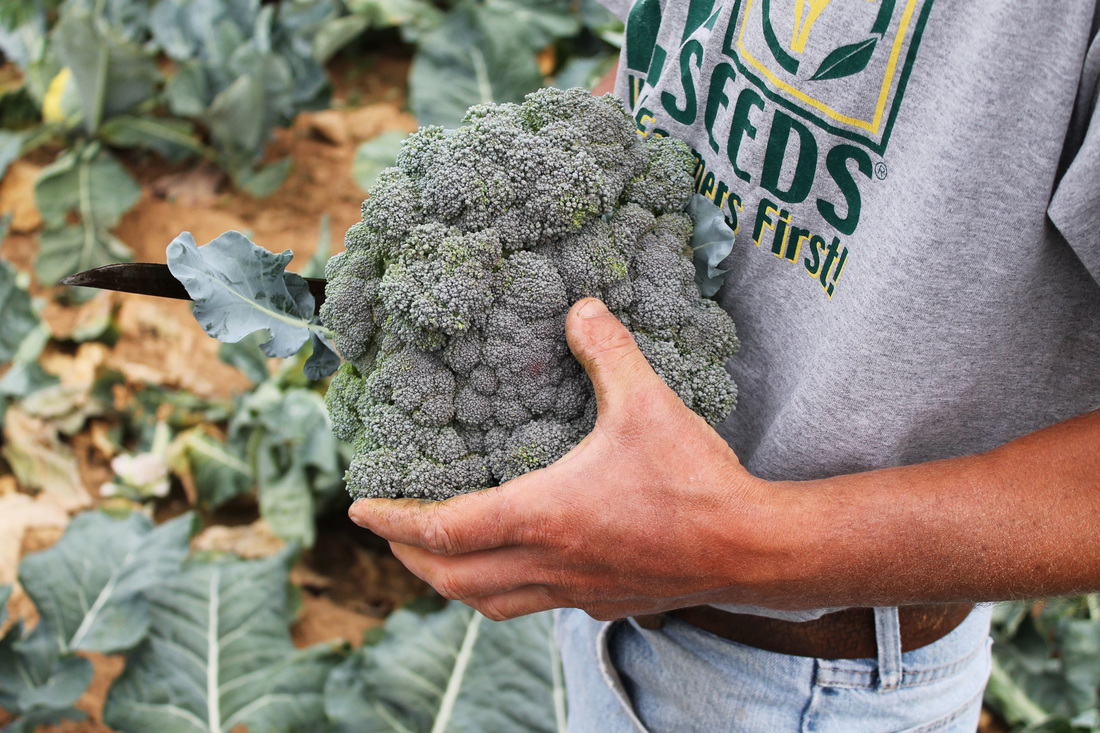
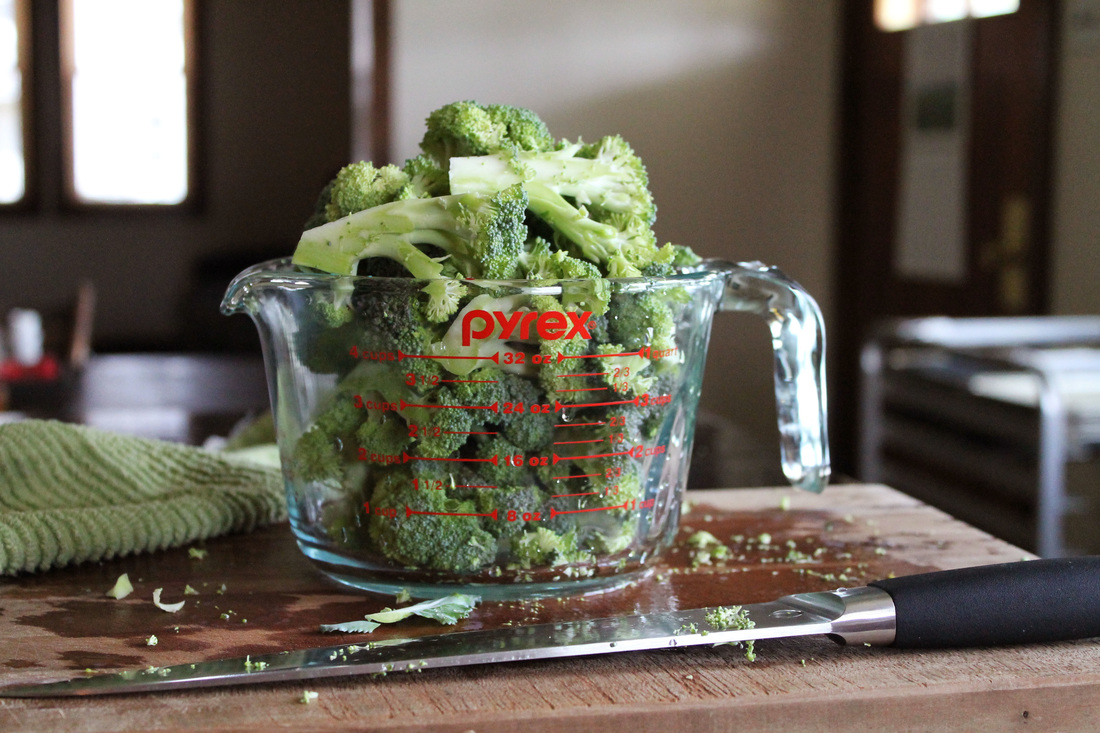
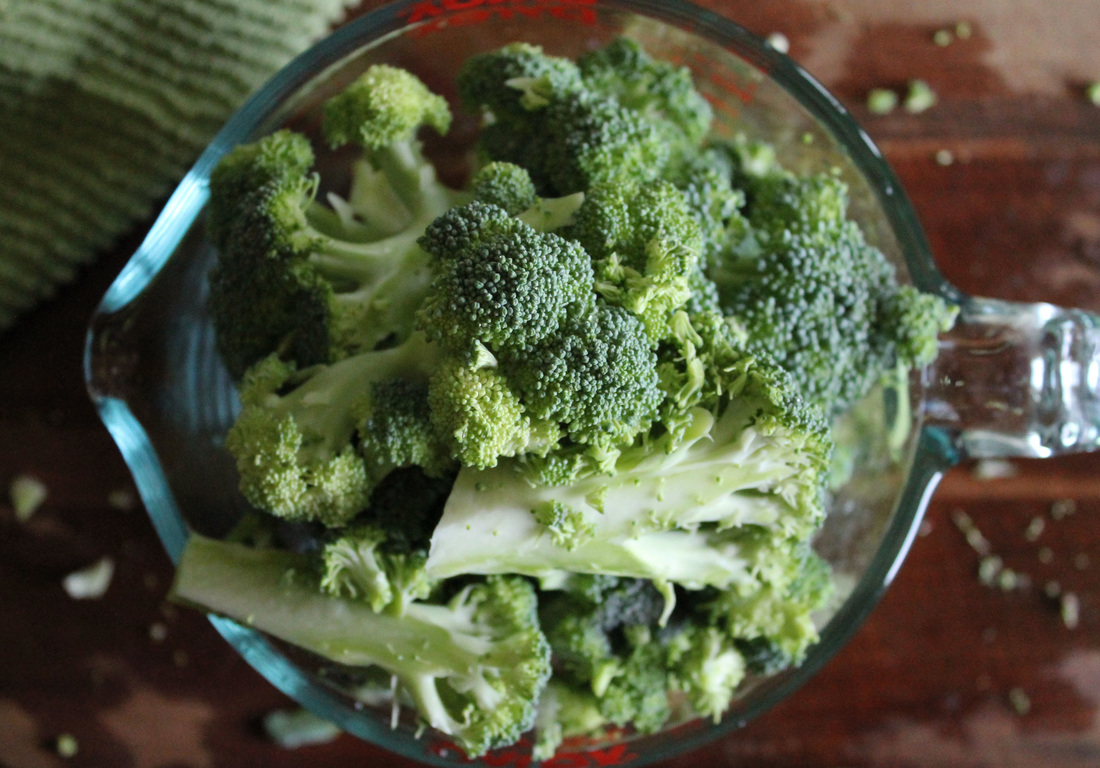
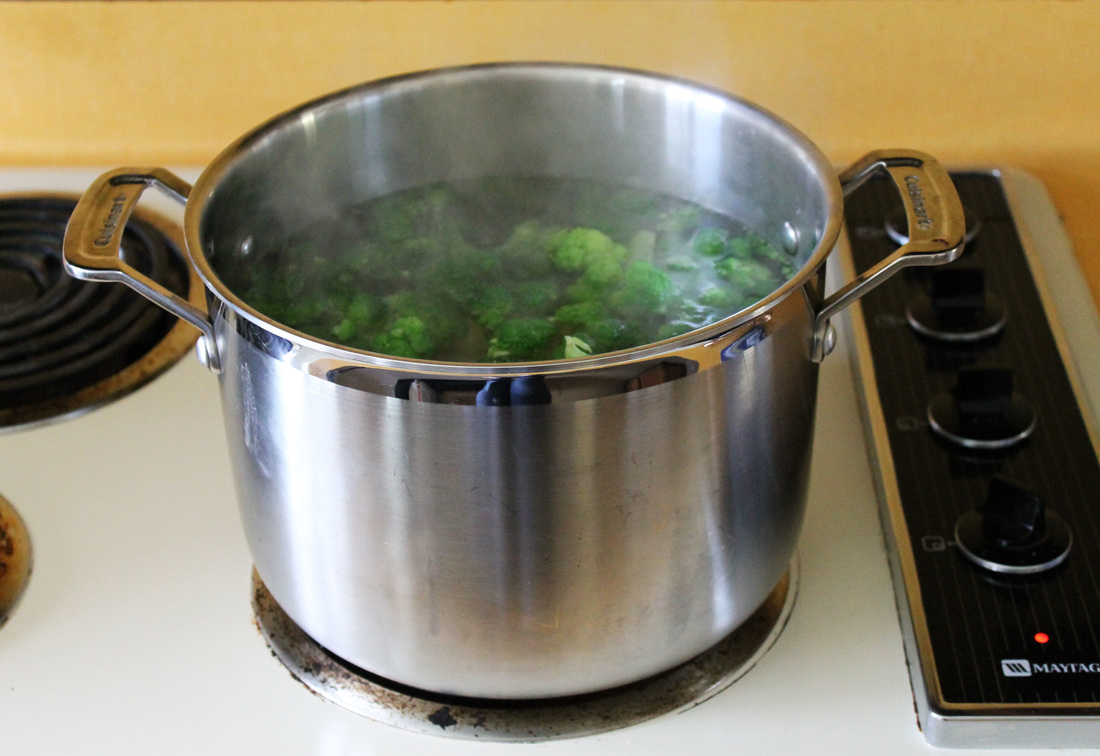
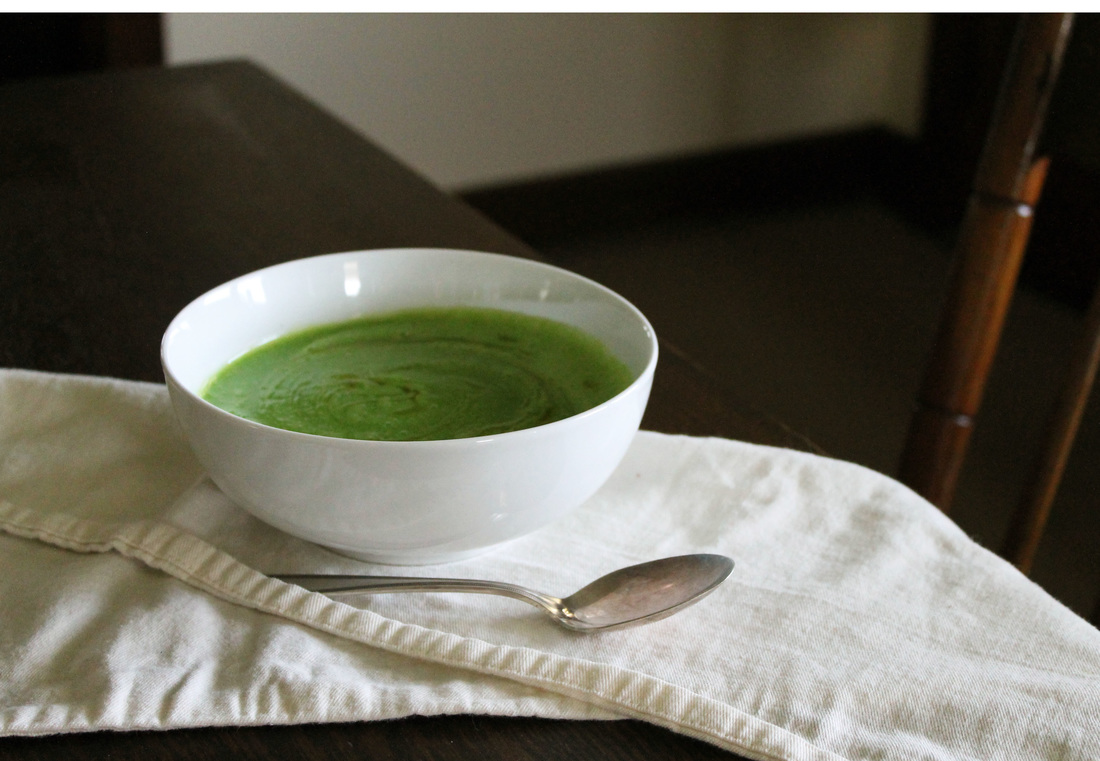
 RSS Feed
RSS Feed
